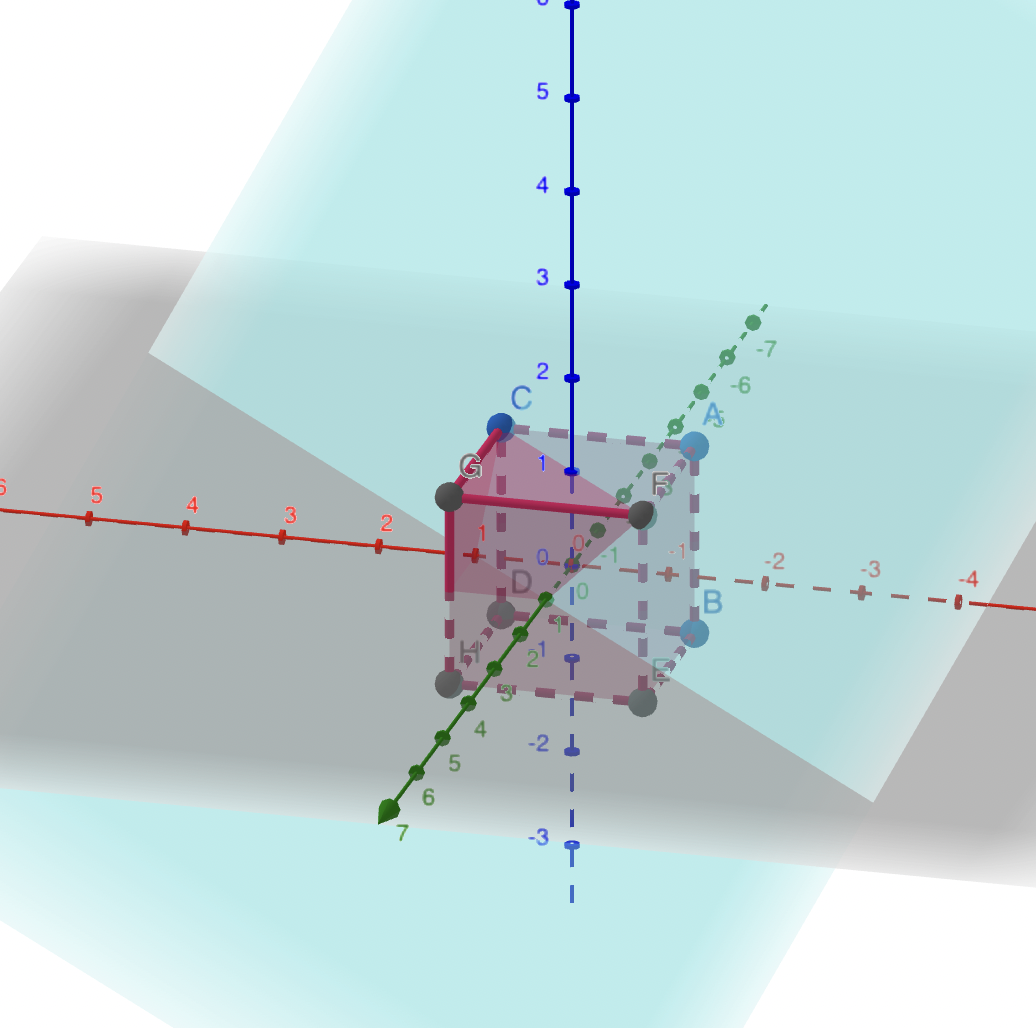Let \(\Omega = \{(x, y, z) : -1\le x \le 1, -1 \le y \le 1, -1\le z \le 1\}\).
Note that \(\operatorname{Vol}(\Omega) = 2^3 = 8\) since it is a cube of side length 2, where Vol denotes the volume.
Now, we find the volume of the region \(\Omega' = \{(x,y,z) : (x,y,z)\in\Omega, x + y + z \le1\}\).
\(\dfrac{\operatorname{Vol}(\Omega')}{\operatorname{Vol}(\Omega)}\) is the required probability.

Looking at the diagram, the plane x + y + z = 1 cuts out a tetrahedron with vertices C, F, G, H, which is 1/6 of the volume.
\(\newcommand{\Vol}{\operatorname{Vol}} \Vol(\Omega') = \dfrac56 \Vol(\Omega)\).
Then, \(\newcommand{\Vol}{\operatorname{Vol}} \text{Prob.} = \dfrac{\Vol(\Omega')}{\Vol(\Omega)} = \dfrac56\).